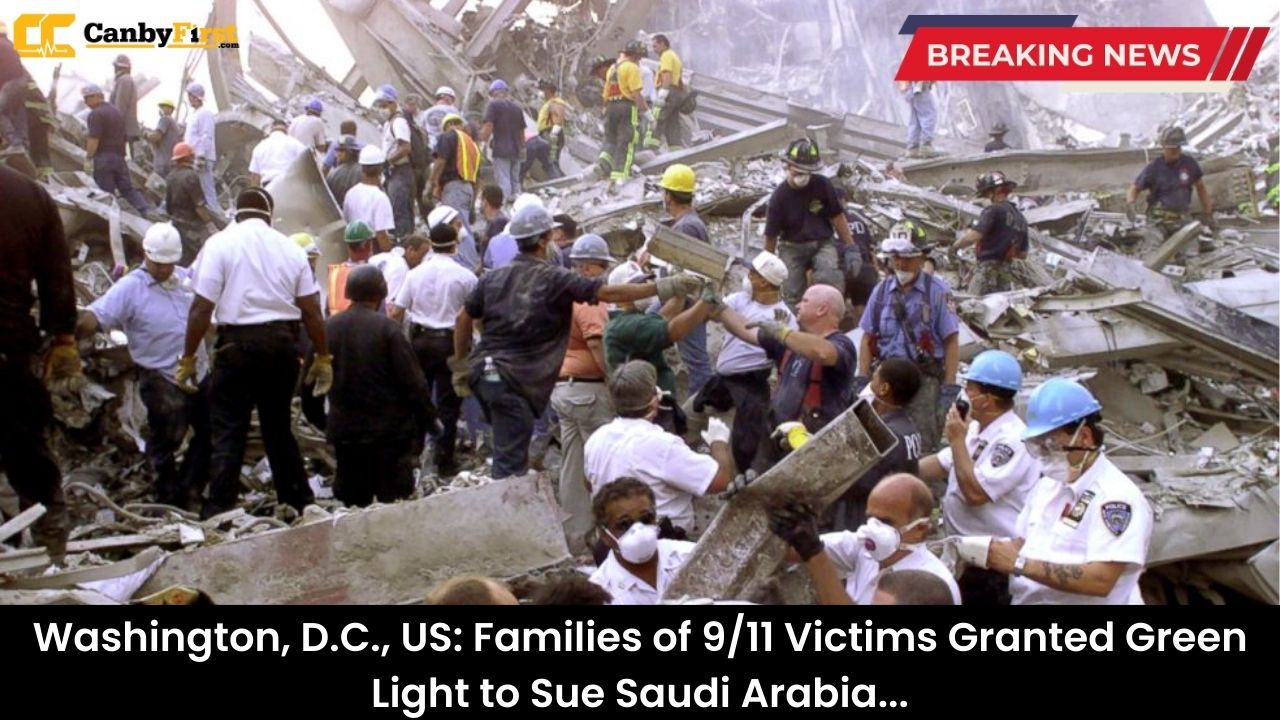A federal judge in Washington, D.C., has issued a landmark ruling allowing families of the September 11, 2001, victims to pursue civil claims against the Kingdom of Saudi Arabia, alleging that the nation’s government provided material support to the hijackers responsible for the deadliest terror attack on American soil.
In a decision handed down Friday, U.S. District Judge John D. Bates determined that the plaintiffs’ lawsuit may proceed, rejecting Saudi Arabia’s bid for immunity under the Foreign Sovereign Immunities Act (FSIA). The ruling opens the door for relatives of nearly 3,000 men, women, and children killed in the coordinated hijackings to seek financial damages directly from the Saudi government.
According to the families’ complaint, certain Saudi officials and charities funneled funds and logistical assistance to al-Qaeda operatives in the lead-up to 9/11. The plaintiffs contend that Saudi Arabia’s diplomatic and intelligence apparatus turned a blind eye as money moved from wealthy donors to extremist recruiters, and that high-ranking Saudi agents knowingly sheltered two of the hijackers while they planned the attack in the United States.
Also Read
Judge Bates concluded that the allegations “plausibly demonstrate” a connection between the foreign state’s conduct and the tragic outcome, and that Saudi Arabia had not met its burden to prove absolute protection under the FSIA’s terrorism exception. “Defendants have presented no authoritative basis for extension of sovereign immunity here,” Bates wrote, emphasizing the “extraordinary gravity” of the families’ claims.
The decision marks the most significant judicial development in the pursuit of accountability for the 9/11 attacks since the September 11 Victim Compensation Fund closed payouts nearly a decade ago. While the fund provided limited compensation quickly after the tragedy, it required recipients to waive the right to sue any entity connected to the attacks. This ruling potentially reverses that waiver for those families who opted out or reserved their right to litigate against foreign governments.
Saudi Arabia swiftly denounced the judge’s order as “legally unsound” in a statement released by its embassy. The statement asserted that the kingdom “unequivocally rejects any suggestion of involvement in the heinous attacks of September 11,” and called the lawsuit “an affront to the rule of law and long-standing diplomatic relations between our countries.”
Plaintiffs’ attorneys hailed the court’s determination as a historic victory for the victims’ families. “This decision brings us one step closer to holding Saudi Arabia accountable for its direct and indirect support of the 9/11 terrorists,” said lead counsel Richard R. Stafford. He indicated that the next phase of litigation will involve detailed discovery into Saudi assets and communications, potentially compelling the kingdom to produce internal records dating back two decades.
Legal analysts predict a fierce battle ahead, as the Saudi government is expected to appeal the ruling to the U.S. Court of Appeals for the D.C. Circuit. Appeals courts have traditionally shown deference to sovereign immunity claims, and the outcome could hinge on nuanced interpretations of the FSIA’s terrorism exception. If upheld, the ruling could set a precedent for other families seeking to sue foreign states accused of terrorism sponsorship.
Beyond the courtroom, the decision carries significant diplomatic implications. Saudi Arabia is a strategic partner of the United States, sharing intelligence cooperation and acting as a key ally in Middle East stability efforts. A prolonged legal fight could strain ties, particularly if the U.S. government opts to intervene or file briefs supporting the kingdom’s immunity claim.
As the case advances, families of the 9/11 victims face the emotional toll of reliving their losses in public proceedings. Yet many say they are driven by a sense of justice long overdue. “We are not seeking vengeance,” explained Sharon Leeds, whose husband perished on Flight 77. “We simply want answers about who enabled these killers, and to ensure no government can evade responsibility for sponsoring terrorism.”
The litigation could extend for years, spanning appeals and discovery motions, with final resolution potentially reaching the Supreme Court. For the families, however, Friday’s ruling represents a critical step toward accountability and closure in a saga that has haunted the nation for a quarter-century. As the legal battle unfolds, all eyes will be on Washington’s federal courts to determine whether sovereign status can shield a nation from the consequences of alleged involvement in history’s darkest chapters.












